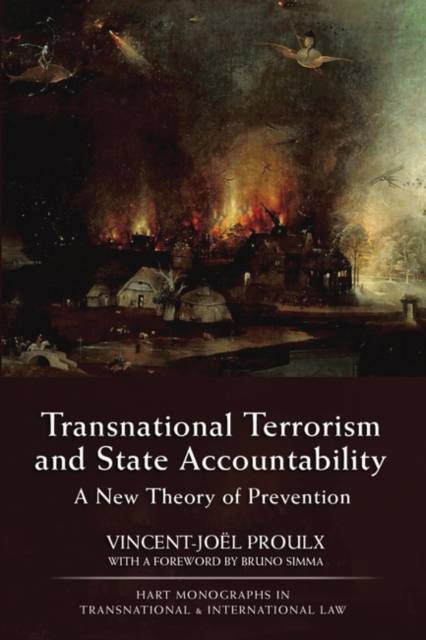
- Afhalen na 1 uur in een winkel met voorraad
- Gratis thuislevering in België vanaf € 30
- Ruim aanbod met 7 miljoen producten
- Afhalen na 1 uur in een winkel met voorraad
- Gratis thuislevering in België vanaf € 30
- Ruim aanbod met 7 miljoen producten
Omschrijving
Every State has an obligation to prevent terrorist attacks emanating from its territory. This proposition stems from various multilateral agreements and UN Security Council resolutions. This study exhaustively addresses the scope of this obligation of prevention and the legal consequences flowing from its violation, so as to provide greater clarity on governments' counterterrorism duties and to enhance State accountability for preventable wrongs. It defines the contents and contours of the obligation while placing critical emphasis on the mechanics of State responsibility. Whether obscured by new technologies like the Internet, the sophisticated cellular structure of some terrorist organisations or convoluted political realities, the level of governmental involvement in terrorist activities is no longer readily discernible in every instance. Furthermore, the prospect of governments waging surrogate warfare through proxies also poses intractable challenges to the mechanism of attribution in the context of State responsibility.
This monograph sets out the shortcomings of the extant scheme of State responsibility while identifying a paradigm shift towards more indirect modes of accountability under international law, a trend corroborated by recent State and institutional practice. Drawing on varied legal and theoretical influences, the study devises and prescriptively argues for the implementation of a strict liability-inspired model grounded in the logic of indirect responsibility with a view to enhancing State compliance with counterterrorism obligations. This shifts the policy focus squarely to prevention, while promoting multilateralism and transnational cooperation. Ultimately, the legal and policy sensibilities underlying the book converge into a new theory of prevention in counterterrorism contexts. From the Foreword by Judge Bruno Simma, International Court of Justice"Even if one might disagree with the bases on which the author constructs his argument, the execution of the argument is solid and thorough. The coverage of the major policy arguments and the available legal source materials is equally impressive. Moreover, the author's positions are genuinely progressive and present a fairly innovative solution, in the form of a strict liability mechanism...It behoves all scholars and practitioners of international law with an interest in combating international terrorism to consider the proposals outlined in this book." Transnational Terrorism and State Accountability by Vincent-Joël Proulx has been awarded the 2014 Myres McDougal Prize for best book in Law, Science, and Policy from the Society of Policy Scientists.
Specificaties
Betrokkenen
- Auteur(s):
- Uitgeverij:
Inhoud
- Aantal bladzijden:
- 378
- Taal:
- Engels
- Reeks:
- Reeksnummer:
- nr. 9
Eigenschappen
- Productcode (EAN):
- 9781849462853
- Verschijningsdatum:
- 5/11/2012
- Uitvoering:
- Hardcover
- Formaat:
- Genaaid
- Afmetingen:
- 157 mm x 234 mm
- Gewicht:
- 725 g

Alleen bij Standaard Boekhandel
Beoordelingen
We publiceren alleen reviews die voldoen aan de voorwaarden voor reviews. Bekijk onze voorwaarden voor reviews.











